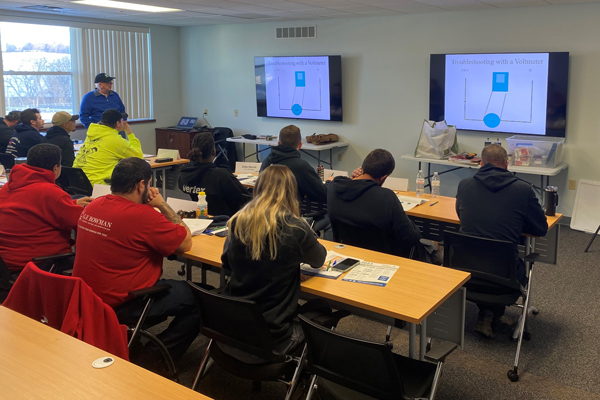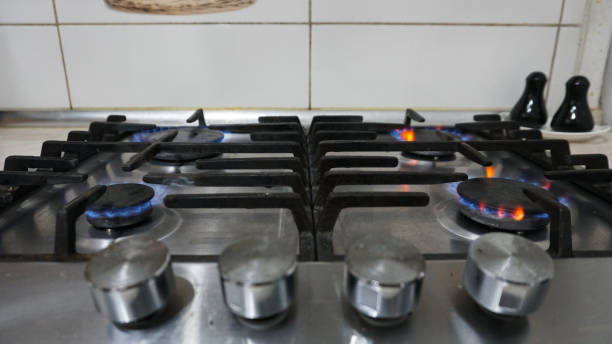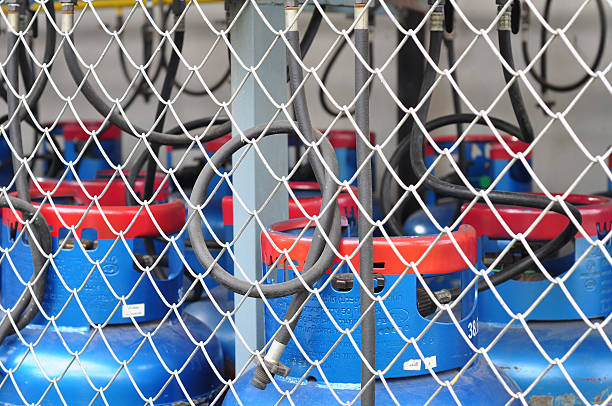Nigerians Embrace Propane-Powered Generators Amidst Surging Gasoline Prices
ABUJA, NIGERIA — Nigeria’s fragile electric grid has prompted many of its residents to turn to gasoline-driven generators for power. However, the president’s decision to eliminate a costly fuel subsidy in May resulted in a threefold increase in gasoline prices, prompting a shift towards generators fueled by the more economical and environmentally-friendly propane. Rasheed Ayodeji,… Continue reading Nigerians Embrace Propane-Powered Generators Amidst Surging Gasoline Prices
ABUJA, NIGERIA — Nigeria’s fragile electric grid has prompted many of its residents to turn to gasoline-driven generators for power. However, the president’s decision to eliminate a costly fuel subsidy in May resulted in a threefold increase in gasoline prices, prompting a shift towards generators fueled by the more economical and environmentally-friendly propane.
Rasheed Ayodeji, a lawyer residing in Abuja, is among the growing number of Nigerians, over 10,000 to date, who have made the transition to generators powered by liquefied petroleum gas (LPG).
The move to LPG, commonly referred to as propane, is a response to the soaring gasoline costs that have tripled since the termination of the fuel subsidy in May. Ayodeji highlighted that using cooking gas to power his generator proves to be a financially prudent choice. “I was initially skeptical, but I decided to give it a shot because I’m open to change. Based on my experience over this past week, my fuel expenses have been slashed by 50% for now, and with the remaining gas, I’m confident it could lead to a 60% reduction,” he shared.
In 2013, Philip Obin embarked on importing hybrid carburetors capable of converting gasoline-based generators to run on LPG. Despite sluggish demand initially, nearly a decade later, Obin saw a dramatic upswing in sales. He disclosed that after the fuel subsidy withdrawal, he sold over 10,000 units in under three weeks. “The product is gaining immense popularity, largely due to the exorbitant cost of petrol, which has surged from 190 or 180 to 550 or 540 per liter across Nigeria… We label them hybrids because they provide the flexibility to operate on either petrol or cooking gas LPG,” Obin elaborated.
Obin confirmed that the transition is simple and straightforward. He clarified that you exchange the current carburetor in your generator for the hybrid model. Following that, you attach the gas cylinder using the regulator and proceed to start your generator. It’s a process as simple as described.
While some individuals harbor concerns about safety, given the use of cooking gas in generators originally designed for gasoline, Obin emphasized that there have been no reported incidents linked to the hybrid carburetor over the past decade.
They have not encountered any explosion incidents attributed to the use of their hybrid carburetor with generators. However, Chuks Edison, an electrical expert and generator repair specialist based in Abuja, stressed the need for caution during installation. Edison recommended, “If you decide to proceed, exercise extreme care. Put comprehensive safety measures in place and ensure your generator is in good condition without any leaks. The plug head is crucial… Additionally, maintain a significant distance between the generator and the gas cylinder.”
Authorities from Lagos State are also evaluating the safety of this product.






























